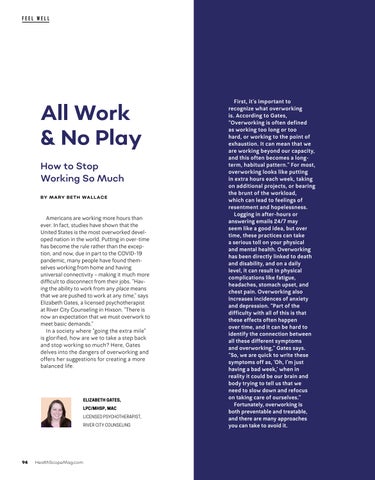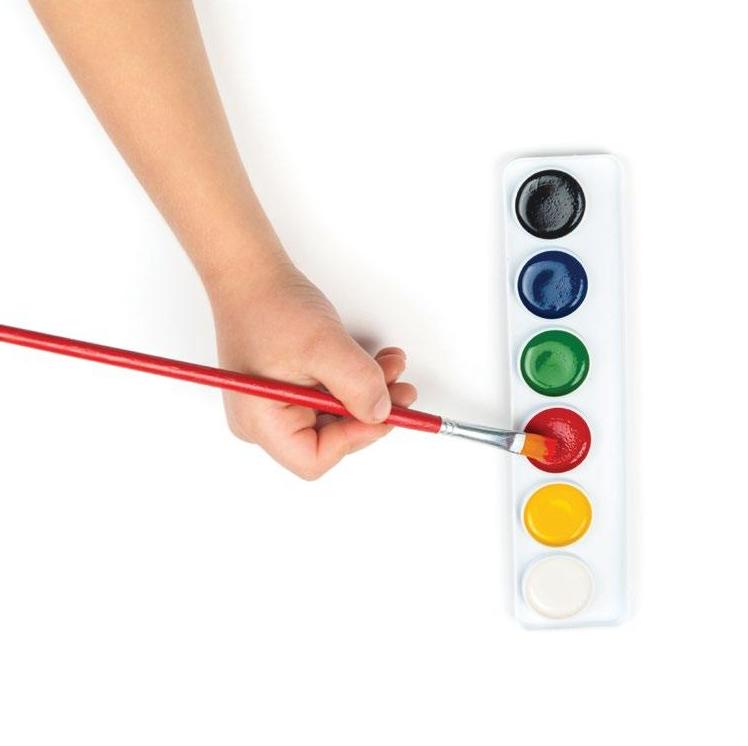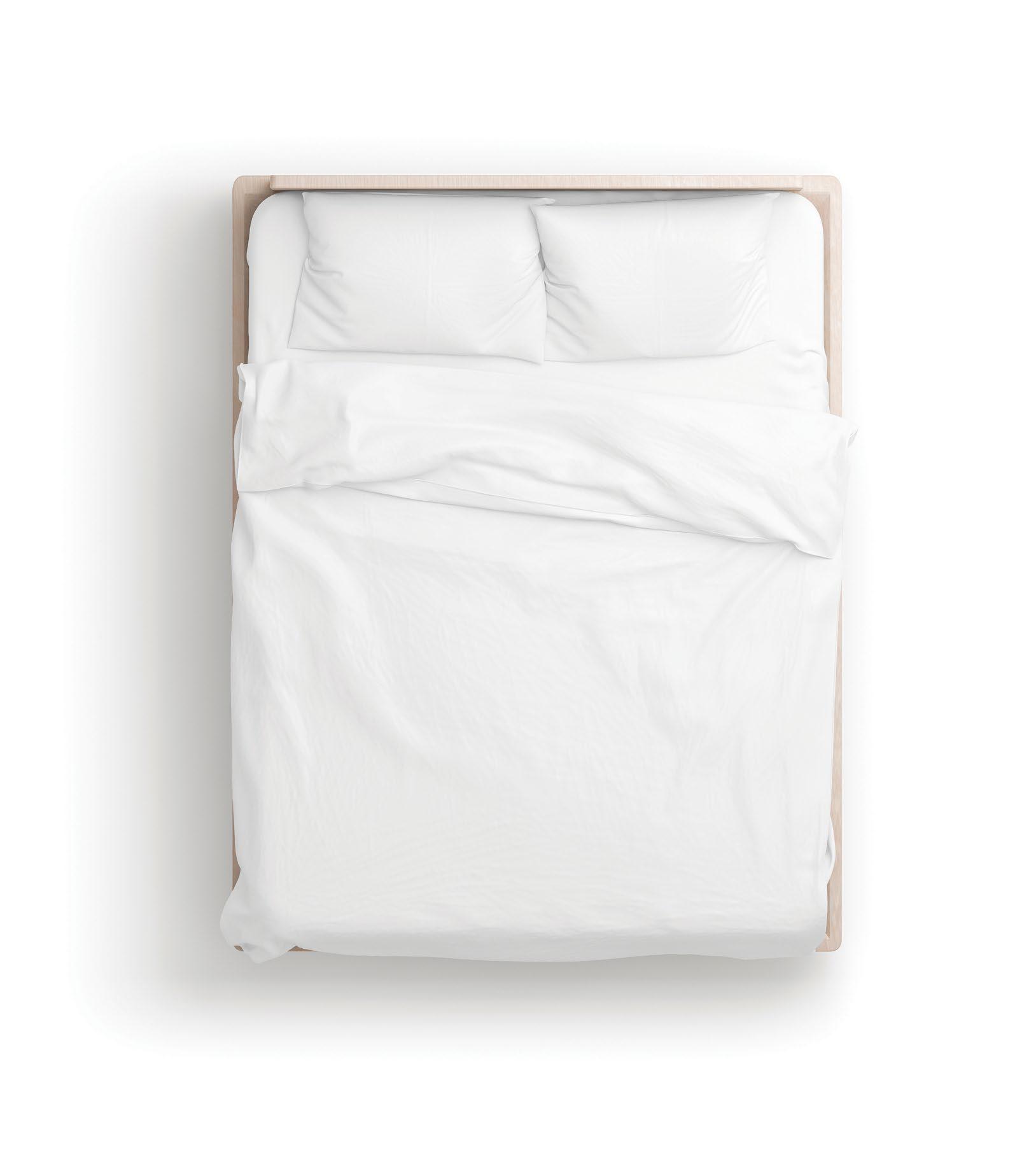FEEL WELL
All Work & No Play How to Stop Working So Much BY MA RY BE TH WAL L AC E
Americans are working more hours than ever. In fact, studies have shown that the United States is the most overworked developed nation in the world. Putting in over-time has become the rule rather than the exception, and now, due in part to the COVID-19 pandemic, many people have found themselves working from home and having universal connectivity – making it much more difficult to disconnect from their jobs. “Having the ability to work from any place means that we are pushed to work at any time,” says Elizabeth Gates, a licensed psychotherapist at River City Counseling in Hixson. “There is now an expectation that we must overwork to meet basic demands.” In a society where “going the extra mile” is glorified, how are we to take a step back and stop working so much? Here, Gates delves into the dangers of overworking and offers her suggestions for creating a more balanced life.
ELIZABETH GATES, LPC/MHSP, MAC LICENSED PSYCHOTHERAPIST, RIVER CITY COUNSELING
94
HealthScopeMag.com
First, it’s important to recognize what overworking is. According to Gates, “Overworking is often defined as working too long or too hard, or working to the point of exhaustion. It can mean that we are working beyond our capacity, and this often becomes a longterm, habitual pattern.” For most, overworking looks like putting in extra hours each week, taking on additional projects, or bearing the brunt of the workload, which can lead to feelings of resentment and hopelessness. Logging in after-hours or answering emails 24/7 may seem like a good idea, but over time, these practices can take a serious toll on your physical and mental health. Overworking has been directly linked to death and disability, and on a daily level, it can result in physical complications like fatigue, headaches, stomach upset, and chest pain. Overworking also increases incidences of anxiety and depression. “Part of the difficulty with all of this is that these effects often happen over time, and it can be hard to identify the connection between all these different symptoms and overworking,” Gates says. “So, we are quick to write these symptoms off as, ‘Oh, I’m just having a bad week,’ when in reality it could be our brain and body trying to tell us that we need to slow down and refocus on taking care of ourselves.” Fortunately, overworking is both preventable and treatable, and there are many approaches you can take to avoid it.






















